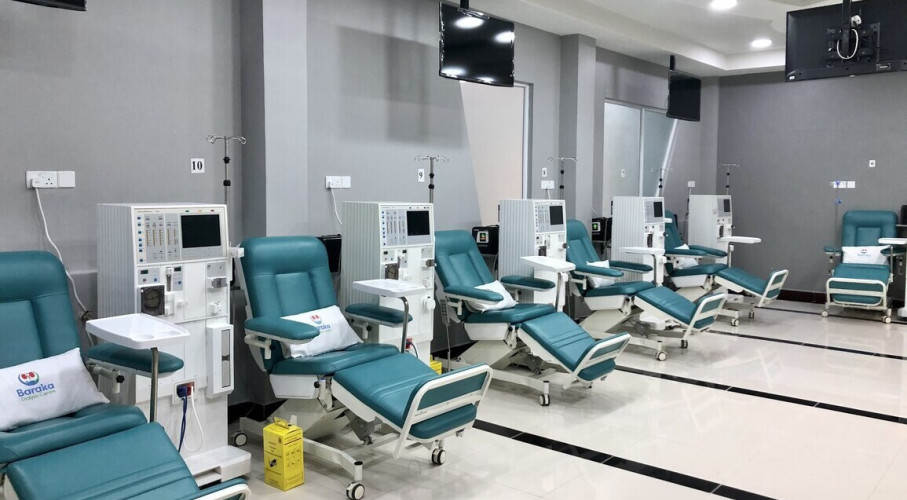The Outpatient Department (OPD) is a cornerstone of any healthcare facility, providing essential services such as consultations, minor procedures, follow-up care, and preventive health measures. Despite its importance, many healthcare systems in Nigeria face significant challenges, including overcrowding, long wait times, inadequate staff, and insufficient infrastructure. These issues hinder the effective delivery of care, leading to delays in diagnosis, patient dissatisfaction, and strained hospital resources.
The Hospital Outpatient Department (OPD) Project is designed to address these critical issues by establishing a state-of-the-art outpatient facility that will significantly enhance the delivery of healthcare services. This facility will operate according to international standards, incorporating modern technologies, smart patient management systems, and a multidisciplinary approach to provide comprehensive, high-quality care. The OPD will reduce overcrowding, enhance patient satisfaction, and streamline healthcare services to support better health outcomes across Nigeria.

The Outpatient Department (OPD) is the frontline of any functional hospital system, playing a vital role in the early detection, diagnosis, and management of various medical conditions. It serves as the first point of contact for patients seeking medical attention, offering consultations, minor procedures, follow-up care, and preventive services. Despite its critical role, access to high-quality OPD services remains a major challenge in many Nigerian healthcare facilities, where overcrowding, long wait times, limited staff, and insufficient infrastructure undermine the quality of care.
Statistics show that millions of Nigerians visit OPDs annually for primary and specialized medical consultations. However, many of these departments are overwhelmed and under-resourced, leading to delays in diagnosis and treatment, poor patient experience, and inefficiencies that strain the broader hospital system.
The World Health Organization (WHO) and global health experts emphasize that an effective OPD is essential to a strong healthcare delivery system. It reduces the burden on emergency departments, promotes early diagnosis, and facilitates continuity of care. Unfortunately, in many parts of Nigeria, OPDs are not equipped to handle rising patient volumes or to deliver the kind of responsive, patient-centered care that modern medicine demands.
The proposed Hospital Outpatient Department Project aims to establish a fully functional, state-of-the-art OPD that will significantly enhance patient care through timely, efficient, and comprehensive medical services. This department will be built to meet international standards, incorporating smart patient flow systems, trained personnel, and integrated services under one roof.
Multi-specialty Clinics: The OPD will host a range of specialty units including general medicine, pediatrics, cardiology, dermatology, internal medicine, and more—ensuring holistic care for patients at all stages of life.
Modern Patient Management Systems: Digital queue management, electronic medical records (EMR), and appointment scheduling will streamline operations and reduce waiting times.
Well-trained Medical Staff: A team of skilled general practitioners, specialists, nurses, and administrative staff will deliver quality care and uphold high professional standards.
Pharmacy and Diagnostic Support: The OPD will integrate laboratory testing and pharmacy units to ensure that patients receive same-day diagnostics and prescriptions.
Health Education and Preventive Services: Regular screenings, immunizations, and health awareness programs will be part of the department’s services, emphasizing prevention and early intervention.
By integrating digital queue management, appointment scheduling, and electronic medical records (EMR), the OPD will reduce waiting times and enhance overall patient experience. This will lead to improved satisfaction levels and a more efficient healthcare environment
The enhanced OPD will serve as the primary point of contact for patients, reducing the volume of cases presented in emergency departments and inpatient wards. This will optimize hospital capacity, leading to better management of resources and improved care for all patients
The OPD will offer preventive services such as regular screenings, immunizations, and health awareness programs, helping to identify health issues early and reduce the long-term burden of chronic diseases
The OPD will contribute to the broader goal of building a more sustainable, responsive, and patient-centered healthcare system in Nigeria by providing access to high-quality outpatient care that promotes long-term health and well-being.
Establish a state-of-the-art outpatient facility that meets international healthcare standards, equipped with modern diagnostic and patient management technologies.
Enhance accessibility to specialty care by offering multi-specialty clinics under one roof, ensuring patients receive timely and comprehensive healthcare services.
Streamline patient flow through the integration of digital systems for appointment scheduling, electronic medical records, and digital queue management, reducing waiting times and improving operational efficiency.
Provide preventive health services including regular health screenings, immunizations, and health education programs to promote early intervention and improve public health outcomes.
Create a skilled workforce by hiring and training healthcare professionals and administrative staff, ensuring a high level of care and professionalism in the OPD.
Improve hospital efficiency by reducing pressure on emergency and inpatient services, ensuring optimal use of hospital resources, and enhancing overall service delivery.
Engineering National Prosperity